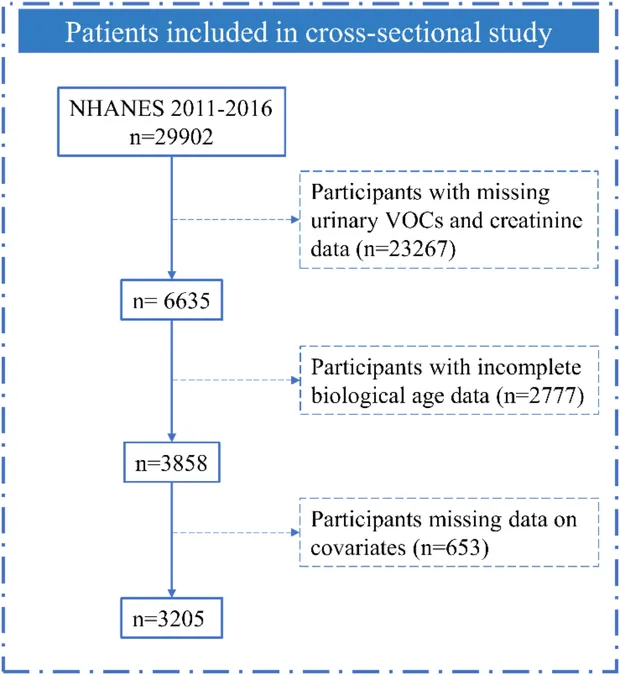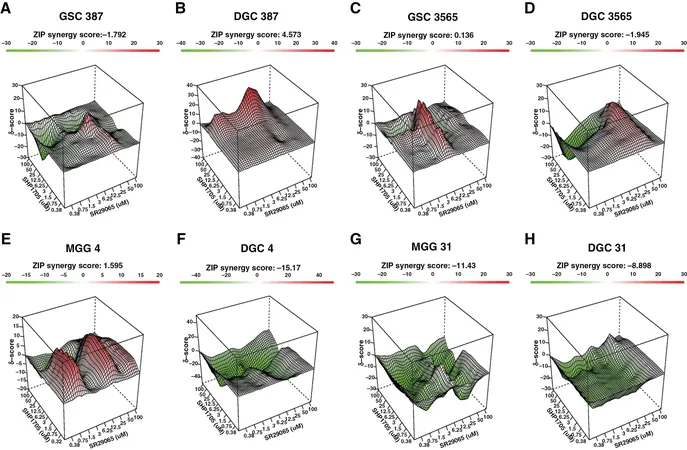
How Volatile Organic Compounds Could Be Speeding Up Your Aging Process!
2025-04-22
Author: John Tan
Rethinking Aging: Biological vs. Chronological Age
Aging is a natural part of life, but chronological age alone doesn't capture how old we truly are biologically. Researchers are investigating various methods to measure biological age, including telomere length and advanced techniques like PhenoAge, which analyzes DNA to better reflect individual aging.
The Hidden Impact of Daily Habits
Daily behaviors like physical activity, smoking, and drinking significantly influence how we age. For instance, studies highlight how physical activity may help slow down the aging process, while tobacco use has been linked to increased biological age.
The Role of Environmental Pollutants
But it’s not just our habits—our environment plays a huge role too. Pollutants such as volatile organic compounds (VOCs) found in everyday products like paints and cleaners are raising eyebrows among scientists. Exposure to these chemicals has been linked to a variety of health issues, including heart disease, diabetes, and even cancer.
Do VOCs Make Us Age Faster?
Research suggests that long-term exposure to VOCs could accelerate biological aging, making them a concerning factor in our health. For example, studies have pointed out significant associations between chemicals like benzene and toluene and increased biological aging, giving us a startling view of how our environments could be aging us prematurely.
Groundbreaking Study on VOCs and Aging
A recent study utilized data from the National Health and Nutrition Examination Surveys (NHANES) to explore the relationship between VOC exposure and biological aging. With a focus on 3,205 participants, the study found notable correlations, suggesting that VOCs significantly influence aging biologically.
How Do Behaviors Influence VOC Impact?
Daily behaviors also played a crucial role in this study. It turned out that habits like smoking and excessive drinking not only expose individuals to higher levels of harmful VOCs but might also amplify their effects, tying environmental hazards to greater aging risks.
Research Findings: A Mixed Bag of Results
While the study revealed alarming connections between VOC exposure and biological age, it also underscored the need for further investigation. Not all VOCs correlated equally with biological aging, highlighting that the interactions between various chemicals could complicate our understanding of their cumulative effects.
Oxidative Stress: The Aging Accelerator?
Many researchers suspect that exposure to VOCs ramps up oxidative stress, leading to cellular damage. This oxidative stress is a key player in aging, potentially triggering a range of health complications.
The Protective Power of Physical Activity
Interestingly, regular physical activity has been linked to improved health outcomes and may mitigate some of the damaging effects of pollution exposure. Exercise not only promotes better physical health but might also combat the oxidative stress linked to VOCs.
Implications and Future Research Needs
In conclusion, while significant findings about VOCs and biological aging have surfaced, the relationship isn’t fully understood. This study raises critical questions about how our behaviors influence the detrimental effects of environmental exposures. The call for more extensive research is clear—it's vital to determine whether reducing VOC exposure or modifying behaviors could slow down our biological aging.
Your Takeaway: Protecting Your Future!
As we continue to uncover these relationships, it's crucial to pay attention to our environments and lifestyle choices. Being proactive about reducing exposure to harmful products and maintaining active, healthy habits could be your key to not just living longer, but living healthier!


 Brasil (PT)
Brasil (PT)
 Canada (EN)
Canada (EN)
 Chile (ES)
Chile (ES)
 Česko (CS)
Česko (CS)
 대한민국 (KO)
대한민국 (KO)
 España (ES)
España (ES)
 France (FR)
France (FR)
 Hong Kong (EN)
Hong Kong (EN)
 Italia (IT)
Italia (IT)
 日本 (JA)
日本 (JA)
 Magyarország (HU)
Magyarország (HU)
 Norge (NO)
Norge (NO)
 Polska (PL)
Polska (PL)
 Schweiz (DE)
Schweiz (DE)
 Singapore (EN)
Singapore (EN)
 Sverige (SV)
Sverige (SV)
 Suomi (FI)
Suomi (FI)
 Türkiye (TR)
Türkiye (TR)
 الإمارات العربية المتحدة (AR)
الإمارات العربية المتحدة (AR)